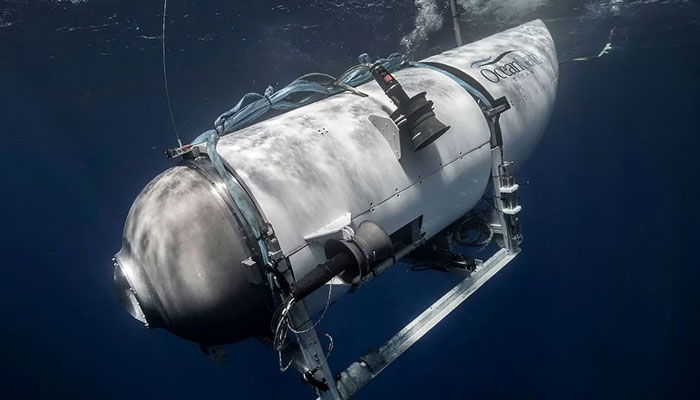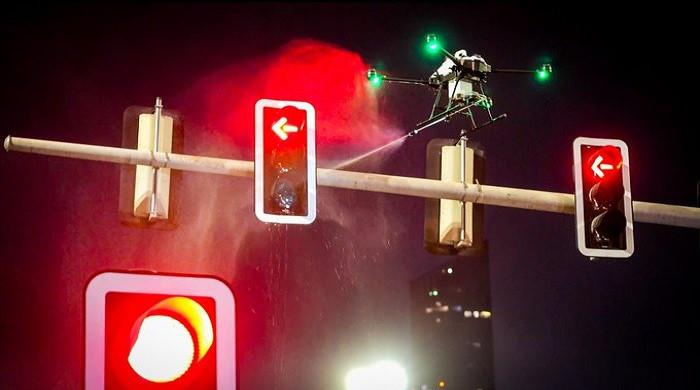Was Titanic director James Cameron aware of flawed Titan technology?
Cameron says he suspected disaster after hearing news that submersible has lost communication
June 23, 2023

James Cameron, the director of the blockbuster 1997 film Titanic, Friday said he had his doubts about the technology OceanGate company used in Titan and that's why they did not get a certification because they knew they wouldn't pass, adding that he should have sounded the alarm.
"I was very suspect of the technology that they were using. I wouldn't have gotten in that sub," James Cameron said who had completed 33 submersible dives to the Titanic wreck.
"I thought it was a horrible idea. I wish I'd spoken up, but I assumed somebody was smarter than me, you know, because I never experimented with that technology, but it just sounded bad on its face," Cameron told Reuters Thursday.
US Coast Guard announced Thursday that the five-member crew Titan imploded as they found debris consistent with the anticipation of leaving the tourists dead.
Titan went missing Sunday just an hour and a half after its dive into the North Atlantic Ocean, bound to take the explorers to the Titanic shipwreck more than 12,000 ft deep. The submersible vessel was from carbon fibre and titanium.
According to Cameron, in 2012 he used a different technology for the Deepsea Challenger submersible expedition in the Pacific, taking him 10,912m (35,800ft), the deepest known oceanic trench.
Cameron said he immediately suspected a disaster as he heard the news about the submersible losing navigation and communication.
"I felt in my bones what had happened. For the sub's electronics to fail and its communication system to fail, and its tracking transponder to fail simultaneously — sub's gone."

He said after hearing the news he contacted the deep submersible community.
"Within about an hour, I had the following facts. They were on descent. They were at 3,500 metres (11,483ft), heading for the bottom at 3,800 metres."
"Their comms were lost, and navigation was lost — and I said instantly, you can't lose comms and navigation together without an extreme catastrophic event or high, highly energetic catastrophic event. And the first thing that popped to mind was an implosion."
The US Navy officials told CBS News Thursday that the navy had detected "an acoustic anomaly consistent with an implosion" shortly after the Titan lost contact with the surface.
Cameron suggested that there was a "terrible irony" in the loss of Titan and its crew, associating it with the loss of the Titanic itself back in 1912.
"We now have another wreck that is based on unfortunately the same principles of not heeding warnings," he said. "OceanGate were warned."
According to the 68-year-old director, some within the deep submergence community had written a letter to OceanGate saying they believed, in his words, "you are going on a path to catastrophe".
A letter sent to OceanGate by the Marine Technology Society (MTS) in March 2018 and obtained by the New York Times stated "the current 'experimental' approach adopted by OceanGate... could result in negative outcomes [from minor to catastrophic]".
Cameron told BBC News that the past week had "felt like a prolonged and nightmarish charade where people are running around talking about banging noises and talking about oxygen and all this other stuff".
"I knew that sub was sitting exactly underneath its last known depth and position. That's exactly where they found it," he continued.
He said anyone venturing into the Titanic wreck should be fully aware of the risks, as "it's a very dangerous site".









